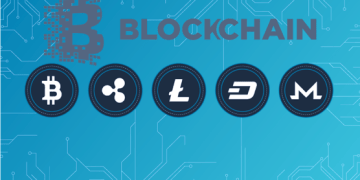Experts define blockchain is a system of recording information which makes it impossible or difficult to change, cheat, or hack. A digital ledger of transactions is redone and distributed across the entire network of computer systems on the blockchain. On each block in the chain is the number of transactions, and every time a new transaction occurs on the blockchain and a record of that transaction is added to every participant’s ledger. The following are the top blockchain benefits:
1. There Is Trust between Different Entities
Blockchain is sometimes referred to as a trustless network, not because business partners don’t trust each other, but because they don’t have to. The businessmen and women use a shared and immutable ledger that members can only access with permission. Network members like the Cardano Blockchain control the information each organization or person can see and what actions each takes. Blockchain significantly reduces or eliminates the use of third parties or middlemen to verify transactions. There is trust between different entities where trust is either missing or unverified, therefore willing to engage in business dealings that involve transactions or data sharing that they may not have done or would have required a middle man to do so.
2. Decentralized Structure
Transparency is one of the significant issues in many industries, with most trying to improve by implementing more rules and regulations. A complete decentralized network does not need centralized authority, improving the system’s transparency. Blockchain proves its value when there is no central actor who enables trust. Blockchain also allows sharing of data within an ecosystem of businesses where no single entity is exclusively in charge. Blockchain, with its decentralized nature, solves for instances like when suppliers and transportation companies to producers, distributors, and retailers want or need information from others in that chain, yet no one is in charge of expediting all that information sharing.
3. Improved Security and Privacy
Blockchain is far more secure because each new transaction is encrypted and linked to the previous transaction. Blockchain is formed by a network of computers coming together to confirm a ‘block,’ then added to a ledger, which forms a ‘chain’, forming a complicated string of mathematical numbers and is challenging to be changed once formed. It results in an immutable and incorruptible nature, making transactions in platforms like the Cardano Blockchain safe from falsified information and hacks. Its decentralized nature of being trustless means that parties do not need trust to transact safely.
4. Highly Efficient and Fast
Paperwork is always time-consuming, prone to human error, and often requires third-party mediation. These processes are streamlined with blockchain transactions that can be completed faster and more efficiently in the blockchain. In addition, records can be stored along with transaction details on the blockchain, eliminating the need to exchange paper. This makes the clearing and settlement can be much faster. People have tried to create digital money in the past, but they have consistently failed because of a lack of trust.
See Also:




